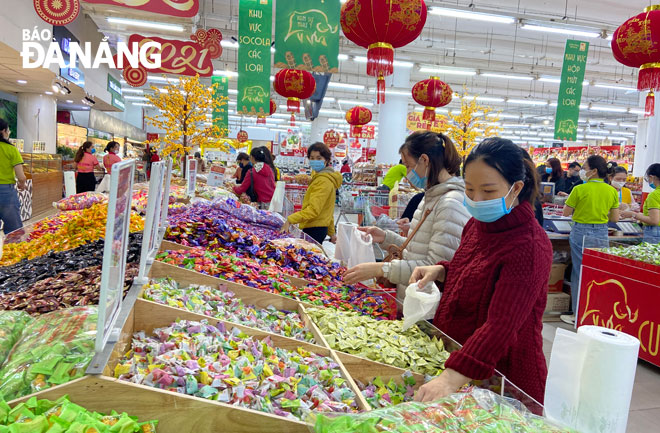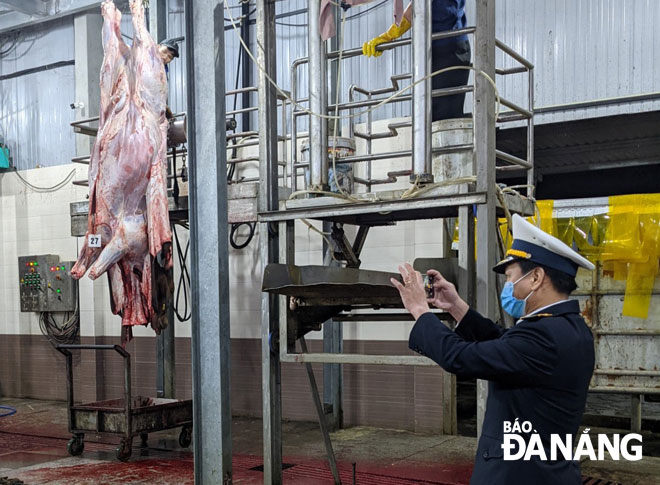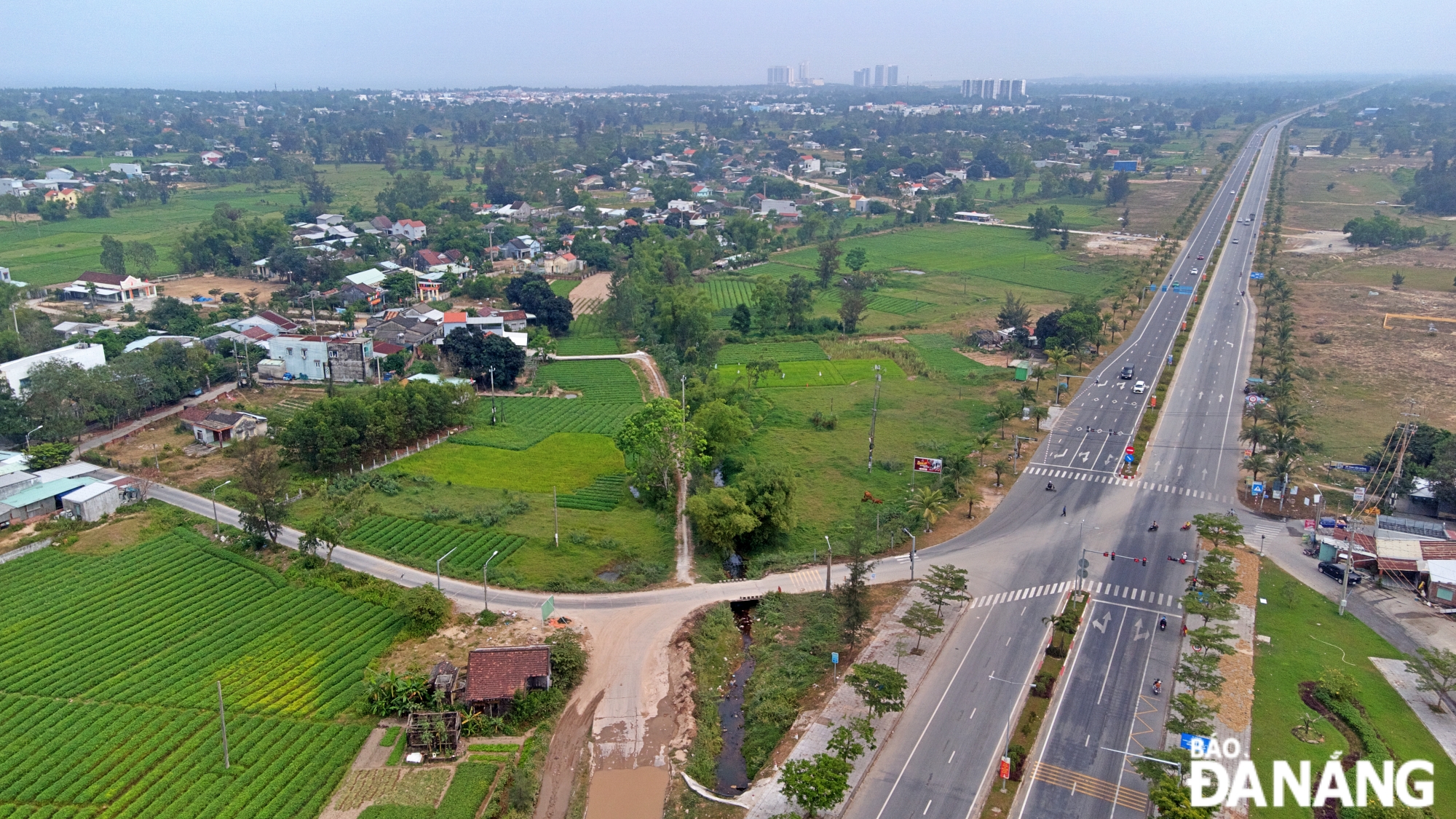Da Nang works to ensure food safety and hygiene for Tet
The food market to serve the Tet (the Vietnamese Lunar New Year) festival is bustling with various kinds of products to meet the increasing public demand but it also poses high risks of unsafe food or violations of Viet Nam's national food safety and hygiene regulations.
 |
| The food market to serve the Tet festival is bustling with various kinds of products to meet the increasing public demand |
The Da Nang Food Safety Management Board is practicing a great mission in encouraging local consumers to use foodstuff items of clear origin, and increasing surprise inspections of the production and trade of food so as to prevent food poisoning before and during Tet.
Till date, many municipal inspection teams have been set up to inspect food safety and hygiene, and product prices for the sake of the protection of consumers’ health.
Inspections are being conducted on facilities producing, processing and trading such products that are mainly used during Tet and other public holidays as meat products, alcoholic drinks, beverages and confectionary.
Importance is being attaching to inspecting large food processing plants, wholesale markets, supermarkets and shopping malls, in addition to small street vendors to ensure that no cases of food poisoning will happen at Tet.
As the main source of food for the whole city, each day, the Hoa Cuong wholesale market provides about 270-300 tonnes of fruit and vegetables, plus food items for the public consumption.
In particular, functional local forces have taken food samples for testing to identify whether or not they contain prohibited substances. In case of detecting multiple pesticide residues in a certain products supply contracts signed with their producers and suppliers will completely terminated, said Diep Hoang Thong Anh, Head of the Hoa Cuong wholesale market.
The traceability of food helps Da Nang improve the quality of food inputs, and limit the consumption of dirty, non-origin and low-quality food, added Anh.
In a similar vein, the quality control over cattle and poultry meat has also been tightened strongly than ever since early January.
According to Da Nang Agency of Livestock and Animal Health, there are now eight slaughterhouses with a combined capacity of supplying about 80 - 90 tonnes of meat per day to the local market.
 |
| Staffers from Da Nang Department of Livestock and Animal Health are inspecting the practice of food safety regulations at the Da Son poultry and livestock slaughtering establishment |
Staffers from the municipal Department of Livestock and Animal Health, over recent days, have inspected the practice of food safety regulations at the Da Son poultry and livestock slaughtering establishment, the largest of its kind in the city.
Also, on regular basis, urine samples are taken from livestock at local slaughterhouses to test for the presence of prohibited substances.
According to Deputy Director of the municipal Department of Livestock and Animal Health Thieu Sau, two animal quarantine stations have been formed at major entry/exit points in Da Nang for the purpose of detecting and preventing the incursion of imported animal diseases, and checking their origins.
Also, before being transported into the city, all types of goods sourced from other nationwide localities must be recognised as having sufficient quarantine papers proving their clear origin.
The inspection of food safety activities to serve Tet has also been deployed in the district-level authorities, with the target at traditional markets. In Son Tra District, relevant agencies have paid random inspection visits to seven traditional markets here.
“We will randomly test certain products on sale at each market determine if the content of formolin, borax, and colouring products exceeds the limits. If any food production establishment is found violating the regulations on food safety and origin, administrative penalties will imposed on them”, said Mr Pham Tan Thanh, Head of the Son Tra District Market Management Bureau.
By PHAN CHUNG- Translated by A.T








